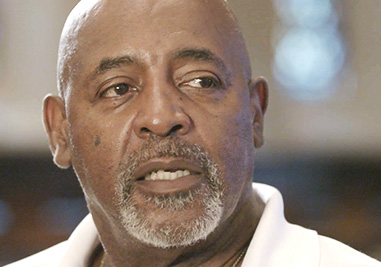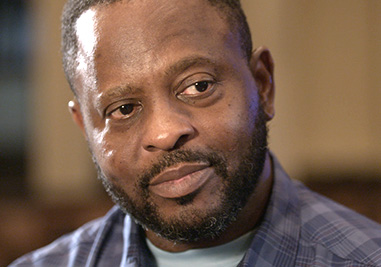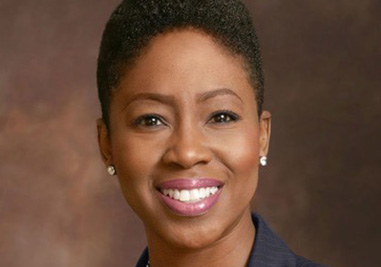Pastoring in a Community That Faces Continual Trauma
Rev. Crebbin continues the conversation about chronic gun violence as he speaks with Rev. Henry Brown of Mothers Against Violence of Hartford, CT and Pastor Samuel Saylor, Sr., Senior Pastor of Gardner Memorial AME Zion Church. Rev. Brown and Pastor Saylor both have personal connections to trauma that they discuss with Rev. Crebbin, and in this episode, they describe how they cope with the chronic stress, both mental and physical, that can result from ministering to a community re-traumatized continually by gun violence.
Featuring
Pastor Samuel Saylor, Sr., Senior Pastor of Gardner Memorial AME Zion Church and Pastor Henry Brown, of Hope Street Ministries and Mothers Against Violence of Hartford, CT.
Written Reflection
Pastoring in a Community That Faces Continual Trauma – Rev. Dr. Stephanie Crumpton, Assistant Professor of Practical Theology, McCormick Theological Seminary
Themes
Personal impact of trauma; Faith and activism; Clergy as first-responder; Bringing hope to the grieving; Living with continual re-traumatization; Sweet justice versus street justice; Pastoring through chronic stress and violence; Building trauma informed ministries; Learning to respond to the tremors of trauma; Resiliency; Self-awareness and self-care; Learning to ask for support; Recognizing the layers of community trauma
Featuring

Rev. Henry Brown
Rev. Henry Brown first committed to ending gun violence on a January night in 1972. That day he had been discharged from the U.S. Army and joined family members in a Cusseta, GA, nightclub to celebrate. When a dispute flared up in the parking lot, Rev. Brown went outside to help. Thinking everything was settled, he went back inside to join his family when he saw a flash and realized that the argument wasn’t over. Rev. Brown spent a month in a coma, but his mindset had been changed forever. He felt angry, withdrawn, depressed, unloved, and most of all, scared. But that shot also gave him new purpose.
In 2001, Rev. Brown was called to serve the Lord after an act of violence in Hartford, CT, caught his attention: The bullet-wounded face of little seven-year-old Takira Gaston, an unintended victim of a rolling gunfight between rival drug dealers, appeared on the front page of the newspaper and Rev. Brown decided something had to be done. He completed his Black ministries course at Hartford Seminary in 2006 and was ordained the following year in the Heart of God Healing Center.
Today, most people know Rev. Brown as the face of Mothers United Against Violence, an organization born in 2003 when he gathered a group of mothers together who had been affected by gun violence. For over a decade, Mothers United Against Violence has helped families devastated by violence. In that time, Rev. Brown has spoken at nearly 300 homicide sites in an effort to bring families and community members a message of hope and he has lead annual marches in Hartford every year since 2009. Through his work with Mothers United Against Violence, Rev. Brown also hosts Real Talk, a weekly call-in show on Hartford Public Access TV to which he invites community activist, pastors, law enforcement, and elected officials to offer commentary on the state of violence in the city.

Pastor Samuel Saylor, Sr.
This year, Pastor Samuel Saylor, Sr. marks 12 years as a pastoral minister, and he has been ordained with Elder’s Orders for ten years by the African Methodist Episcopal (AME) Zion Church. Currently, Pastor Saylor is the Senior Pastor of the Gardner Memorial AME Zion Church of Springfield, MA, and was appointed by the New England Conference as Chairman of the Social and Political Action Committee. Saylor is also the National Vice President of the National Gun Victims Action Council, a Chicago-based coalition of gun violence victims.
Pastor Saylor has fought tirelessly for gun reform laws since October 2012, when his son Shane was senselessly murdered. He has mobilized with the parents from Newtown, CT, as well as other concerned citizens, traveling to Washington, D.C. and other major cities to lobby for responsible gun legislation. Saylor coined the phrase, “We are Newtown,” during a speech in Hartford, CT, after gaining insight into the interconnectedness of urban and suburban gun violence. In February 2013, the pastor met with Vice President Joe Biden to secure support for a new campaign called “Kids Without Guns,” where children would pledge to not play with and turn in their toy guns.
Pastor Saylor has spent the last 33 years serving as an activist, youth worker, administrator, and parent leader. Among the many awards and recognitions he has received, some include: Hartford Public Schools “Parent of the Year Award,” African American Alliances “Father of the Year,” and Hartford District Conference’s “Preacher Appreciation Award.”For the past three decades, Saylor has served on many boards and task forces such as: The Connecticut Governor’s Task Force of Education and Equality; the Interdenominational Ministerial Alliance (IMA); the African American Alliance; Mothers United Against Violence; and, Hartford’s Hundred Man Movement. He is also the founder of Sons & Daughters of Harriet Tubman. He is also husband to Gabriella, a father of six, and grandfather to four.
Written Reflection

Rev. Dr. Stephanie M. Crumpton
Rev. Dr. Stephanie M. Crumpton is a scholar, teacher, and ordained minister in the United Church of Christ. In 2006, she began doctoral research on Black women’s experiences of intimate and cultural violence. During this time she also worked as a state court-appointed family violence advocate in the Fulton County Solicitor General’s Office in Atlanta, GA. Crumpton has consulted with the Georgia Commission on Family Violence’s initiative to equip faith communities with networks and practical resources for responding to intimate violence. Her work continues to inform her trauma-sensitive approach to her community outreach, research, and teaching. As the Assistant Professor of Practical Theology at McCormick Theological Seminary, Crumpton teaches introductory level courses on pastoral care and religious education, and elective courses on pastoral theological method for justice work, womanist/feminist pastoral care and counseling, and the role of African cosmology and ritual in pastoral care. She has also taught at Emory University’s Candler School of Theology; Chicago Theological Seminary; Hood Theological Seminary; Lancaster Theological Seminary; and Interdenominational Theological Center.




